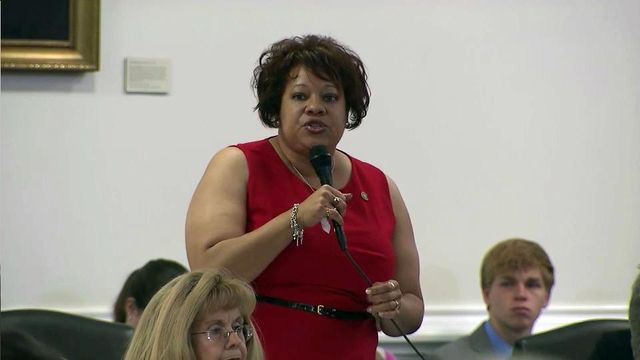Proposal keeps sitting NC Supreme Court justices from facing opponents
Members of the state Supreme Court would be able to run in retention elections rather than facing opponents if a proposal the Senate has given tentative approval becomes law.
Posted — UpdatedInstead, Supreme Court justices would be able to run in retention elections for another eight-year term, during which voters are asked only whether they want to keep or unseat a particular judge. At least 17 states hold retention elections for appellate courts, according to the American Bar Association.
Earlier versions of the bill, House Bill 222, would have called for retention elections for sitting members of the state Court of Appeals as well. As it was tentatively approved by the state Senate, it applies only to the Supreme Court.
Retention elections are one approach states have used to cut down on expensive judicial campaigns, which can require justices to raise money from those who could bring cases before the court.
Although the switch to retention elections isn't particularly controversial, the timing could be.
The bill would begin retention elections in 2016. Only one member of the court, Justice Bob Edmunds, a Republican, faces re-election in 2016.
The timing of the bill, Sen. Josh Stein, D-Wake, said, "appears, to me, cravenly political. To do it for for this (2016) election cycle, makes it the Justice Bob Edmunds Protection Act."
Edmunds, who is currently 66, would have to retire before his eight-year term is up when he hits the mandatory retirement age of 72.
Judges are retained if more than half of those voting back keeping them. Experience shows it is hard to unseat a judge in a retention election barring some obvious case of malfeasance or wildly unpopular decision.
Sen. Ralph Hise, R-Mitchell, said that 2016 is an ideal time to test the new law because there would be only one judge it would affect.
"It is a wonderful opportunity to make sure this process functions," Hise said.
Senators turned down an amendment by Sen. Jane Smith, D-Robeson, that would have moved the effective date of the bill to 2017.
The Senate gave the bill tentative approval on a 35-13 vote. Senators are scheduled to vote a final time Monday night, which would send the measure to the House for a final vote before it goes to the governor.
• Credits
Copyright 2024 by Capitol Broadcasting Company. All rights reserved. This material may not be published, broadcast, rewritten or redistributed.






